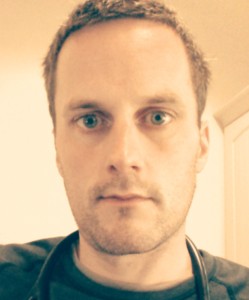 Over the weekend, the Times published findings from a new survey conducted by Medix, which asked 600 doctors various questions on assisted dying, assisted suicide, and euthanasia. The coverage contrasted the findings with those from a similar Medix survey a decade ago, reported then in The BMJ. But reading the complete data in the new survey highlights what some would consider surprising, if not shocking, views from doctors, especially when we consider how the medical establishment is often cited as unanimously opposed to any proposals on this issue.
Over the weekend, the Times published findings from a new survey conducted by Medix, which asked 600 doctors various questions on assisted dying, assisted suicide, and euthanasia. The coverage contrasted the findings with those from a similar Medix survey a decade ago, reported then in The BMJ. But reading the complete data in the new survey highlights what some would consider surprising, if not shocking, views from doctors, especially when we consider how the medical establishment is often cited as unanimously opposed to any proposals on this issue.
While the majority of doctors were against a UK change in law to allow physician assisted suicide and/or euthanasia when asked the question in broad terms, a majority of respondents also believed that there would be grounds for physician assisted euthanasia if a patient had a terminal illness.
Also, 48% of respondents believed that assisted dying “empowers patients who wish to take more control of their end of life care,” against 35% who disagreed.
Other surveys and research make clear that medical opinion includes a wide range of views on assisted dying, and that there is no unanimous verdict from the profession. However, this particular survey shows that doctors draw a clear line between assisting a patient who is dying and one who is not. In that sense, the surveyed doctors are similar to the general public, who show much more support for allowing assisted dying for people who are terminally ill, mentally competent adults, than they do for people with diseases or illnesses that are not terminal.
This view is in line with the current proposals that are being scrutinised by the House of Lords, after Lord Falconer’s Assisted Dying Bill passed its second reading debate in July. The bill would only allow assistance to die for patients who have a prognosis of six months or less to live, and who have been assessed as mentally competent by two independent doctors.
Perhaps the most revealing question from the recent Medix survey was when doctors were asked: “What system do you think should be in place to safeguard terminally ill patients who want an assisted suicide and [to] safeguard doctors who may be prepared to help them?” More than half (57%) of doctors wanted legislation in place that would allow the practice within stringent safeguards and national guidelines. Only 21% did not want legislation under any circumstances, and even fewer (12%) wanted a criminal law prohibiting the practice—the legal context we currently operate in.
What this survey says to me is that many doctors are unhappy with the current opaque legal situation, where even discussing these issues with a patient may be breaking the law. It makes sense that doctors who come face to face with these issues will want an alternative to the current system, which operates behind closed doors, and which causes untold suffering for many terminally ill people—leaving families and medical teams feeling helpless. Indeed, just under a third (29%) reported that they had been asked by a patient to assist them to die, while (incredibly) over a third of respondents (37%) believed that there are circumstances where healthcare professionals in the UK are currently assisting patients to die.
Doctors have now signalled that it is time to stop ignoring this issue and to work out how best to safeguard assisted dying. As Lord Falconer’s bill moves to committee stage in the autumn, at which point the safeguards will be examined, it is clear that it is a question of how, not if, we change the law on assisted dying.
Paul Teed is a junior doctor in A&E.
Competing interests: Paul Teed is a member of Healthcare Professionals for Assisted Dying.
